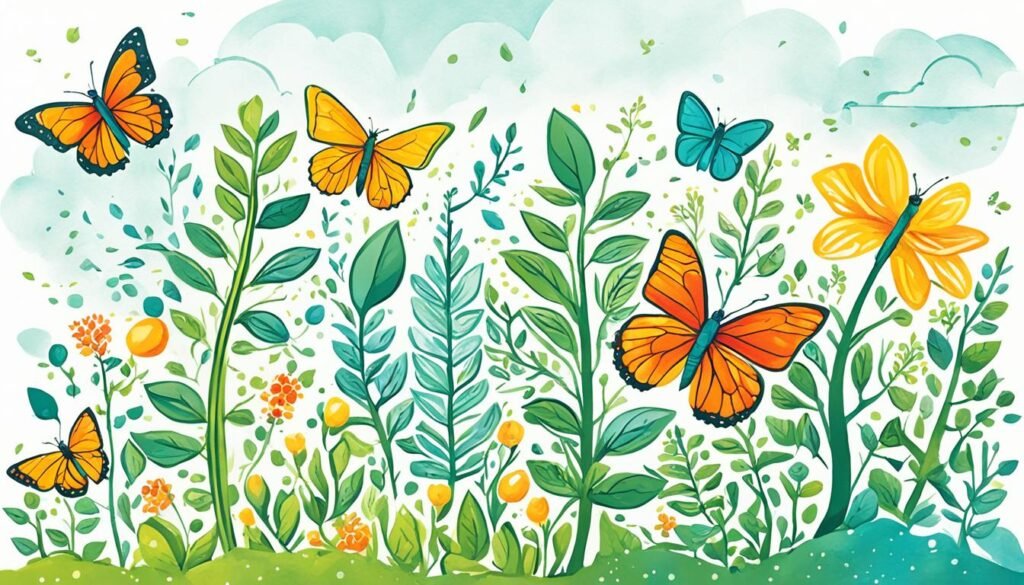Unlock your true potential and embark on a transformative journey of personal growth with this comprehensive guide to self-improvement techniques. From cultivating mindfulness and developing a growth mindset to harnessing the power of emotional intelligence and productivity hacks, these strategies will empower you to elevate your life to new heights.
Delve into a diverse array of self-development methods and life coaching practices that can foster self-awareness, build resilience, and unleash your creativity and innovation. Discover practical tools and insights that will guide you through the process of self-discovery, helping you unlock the best version of yourself.
Whether you’re seeking to enhance your personal growth strategies, explore positive psychology tools, or master habit formation techniques and goal-setting approaches, this guide has you covered. Prepare to embark on a transformative journey and unlock your full potential.
Embrace Mindfulness and Meditation
Mindfulness and meditation are powerful mindfulness techniques that can help you reduce stress, increase mindfulness benefits, and cultivate inner peace. In this section, we’ll explore the essence of mindfulness, guiding you through practices to help you be present in the moment and develop a non-judgmental awareness of your thoughts and experiences.
Understanding the Essence of Mindfulness
At the heart of mindfulness is the ability to be fully present and mindful living. Through mindfulness exercises, you’ll learn to quiet the chatter of your mind, focusing your attention on the here and now. This non-judgmental awareness can help you gain deeper insights into your thoughts, emotions, and behaviors, empowering you to make more conscious choices in your life.
Guided Meditation Practices for Beginners
Introducing meditation practices into your routine can be a transformative experience. We’ll guide you through simple, yet effective, meditation techniques that can help you cultivate focus, calm, and inner clarity. Whether you’re a complete beginner or seeking to deepen your practice, these guided meditations will provide you with the tools to unlock the benefits of mindfulness.
Integrating Mindfulness into Daily Routines
Mindfulness is not just a practice, but a way of mindfulness exercises that can be woven into your daily life. We’ll share practical strategies for incorporating mindfulness into your daily routines, such as mindful breathing, mindful eating, and mindful walking. By making mindfulness a habit, you can experience its profound mindfulness benefits on an ongoing basis, enhancing your overall well-being and personal growth.
Develop a Growth Mindset
One of the key self-improvement techniques is adopting a
growth mindset
. This powerful approach can help you overcome obstacles, embrace challenges, and ultimately achieve your personal development goals. In this section, we’ll explore how to identify and challenge limiting beliefs, as well as cultivate a habit of positive self-talk to foster a more resilient and empowering mindset.
Challenging Limiting Beliefs
Often, our limiting beliefs can hold us back from reaching our full potential. These deeply-rooted assumptions about ourselves and our abilities can hinder our personal development and prevent us from taking risks or trying new things. To break free from these limiting beliefs, it’s essential to first identify them. Reflect on the thoughts and self-talk that often hold you back, and challenge the validity of these beliefs.
Reframe your perspective by asking yourself questions like: “Is this belief truly accurate, or is it based on past experiences that may not apply anymore?” or “What evidence do I have that contradicts this belief?” By confronting and questioning your limiting beliefs, you can begin to replace them with more empowering, growth-oriented mindsets.
Cultivating a Positive Self-Talk Habit
Closely linked to challenging limiting beliefs is the practice of cultivating a habit of positive self-talk. The way you speak to yourself can have a profound impact on your self-improvement journey. Instead of dwelling on negative thoughts or self-criticism, make a conscious effort to replace them with encouraging, supportive inner dialogues.
Whenever you catch yourself engaging in negative self-talk, pause and reframe the message in a more positive light. Remind yourself of your strengths, achievements, and the progress you’ve made. This practice of positive self-talk can help reinforce a growth mindset, fostering a greater sense of confidence, resilience, and determination as you navigate your personal development goals.
growth mindset
and cultivating a habit of positive self-talk, you can unlock your true potential and overcome the challenges that arise on your
self-improvement
journey. With a resilient and empowering perspective, you’ll be better equipped to achieve your goals and become the best version of yourself.
Self-Improvement Techniques
Unlocking your full potential requires a multifaceted approach, and this section delves into a range of practical self-improvement techniques that can help you cultivate a meaningful and fulfilling life. We’ll start by exploring how to identify your core values and passions, which can serve as a guiding compass for your personal growth journey.
Identify Your Core Values and Passions
Understanding your personal values is the foundation for sustainable self-improvement. Take the time to reflect on what truly matters to you, whether it’s making a positive impact, pursuing creativity, or prioritizing work-life balance. By aligning your actions with your core values, you’ll find greater purpose and motivation in your self-improvement efforts.
Set SMART Goals for Personal Growth
Once you’ve identified your values and passions, the next step is to set SMART goals that will keep you focused and accountable. SMART goals are Specific, Measurable, Achievable, Relevant, and Time-bound, allowing you to track your progress and celebrate your milestones along the way. This structured approach to goal-setting will empower you to transform your aspirations into actionable steps, fueling your personal growth journey.
Track Your Progress and Celebrate Milestones
Sustained self-improvement requires consistent effort, but it’s also crucial to celebrate your achievements along the way. Develop a system for regularly tracking your progress, whether it’s through journaling, progress logs, or digital tools. By acknowledging your successes, no matter how small, you’ll reinforce the positive momentum and stay motivated to continue your transformation.
Emotional Intelligence: The Key to Self-Awareness
Emotional intelligence plays a pivotal role in the journey of self-improvement. It empowers you to understand and manage your emotions, cultivate self-awareness, and build stronger interpersonal relationships. By developing your emotional intelligence, you can enhance your decision-making abilities, improve your interpersonal skills, and foster a deeper understanding of yourself and others, ultimately leading to greater personal growth and fulfillment.
The core components of emotional intelligence include self-awareness, emotional regulation, and empathy. Self-awareness involves being attuned to your own thoughts, feelings, and behaviors, allowing you to make more informed and intentional choices. Emotional regulation, on the other hand, enables you to manage your emotions effectively, preventing them from derailing your progress or undermining your relationships.
Empathy, the ability to understand and share the feelings of others, is another crucial aspect of emotional intelligence. By developing empathy, you can build stronger connections, improve your communication skills, and navigate interpersonal situations with greater sensitivity and understanding. This, in turn, can lead to more meaningful and fulfilling relationships, which are essential for personal growth and well-being.

As you cultivate your emotional intelligence, you’ll become better equipped to navigate the ebbs and flows of your self-improvement journey. You’ll be able to recognize and manage your own emotions, as well as empathize with the experiences of those around you. This holistic approach to personal growth will empower you to make more informed decisions, solve problems more effectively, and create a fulfilling life that aligns with your values and aspirations.
Unleash Your Creativity and Innovation
Tapping into your creative potential is a powerful self-improvement technique that can help you generate new ideas, solve problems, and discover untapped aspects of yourself. In this section, you’ll explore various brainstorming techniques to stimulate your creative thinking, as well as strategies for nurturing your creative side.
Brainstorming Techniques for New Ideas
Unleashing your creativity starts with embracing the power of brainstorming. Techniques such as mind mapping, lateral thinking, and the use of creativity prompts can unlock a wealth of innovative solutions and fresh perspectives. By engaging in these dynamic exercises, you’ll tap into your subconscious mind, challenge your assumptions, and uncover unexpected self-expression opportunities.
Nurturing Your Creative Side
Cultivating your creative side doesn’t have to be limited to specific artistic pursuits. In fact, innovation can manifest in various aspects of your life, from problem-solving at work to exploring creative hobbies. By embracing a creative mindset, you can unlock new avenues for personal growth and self-discovery. Whether it’s through writing, painting, music, or even unconventional problem-solving, nurturing your creative potential can lead to a profound sense of self-expression and fulfillment.
Develop Resilience and Grit
Navigating the self-improvement journey often requires the ability to overcome obstacles and setbacks. Developing resilience and grit is essential for pushing through challenges and achieving your personal growth goals. In this section, you’ll explore strategies to bolster your mental toughness and cultivate the perseverance needed to thrive, even in the face of adversity.
Overcoming Obstacles and Setbacks
When faced with adversity, it’s crucial to reframe your mindset and approach challenges with a sense of determination. Start by acknowledging your feelings, but then shift your focus to proactive solutions. Seek support from trusted friends, family, or mentors who can provide encouragement and practical guidance. Implement self-care practices, such as mindfulness exercises or stress-relieving activities, to help you maintain a balanced and resilient outlook.
Building Mental Toughness
Developing mental toughness is a key aspect of building resilience and grit. Begin by cultivating a positive self-talk habit, replacing negative thoughts with empowering affirmations that boost your confidence and determination. Incorporate visualization techniques, imagining yourself successfully navigating challenges and achieving your goals. Additionally, foster a growth mindset, embracing setbacks as opportunities for learning and improvement, rather than viewing them as failures.
By nurturing your resilience and grit, you’ll cultivate the inner strength and determination needed to overcome obstacles and setbacks, ultimately empowering you to reach your full potential on your self-improvement journey.
Time Management Strategies for Personal Productivity
Effective time management is a crucial self-improvement technique that can help you maximize your personal productivity and achieve your goals. In this section, you’ll learn strategies for prioritizing your tasks, eliminating time-wasters, and developing habits that enhance your overall efficiency.
Prioritizing Tasks and Eliminating Time Wasters
One of the keys to effective time management is learning how to prioritize your tasks. Start by identifying your most important and high-impact activities, and allocate your time and energy accordingly. Utilize tools like the Eisenhower Matrix to help you distinguish between urgent and important tasks, and focus on the ones that will drive the greatest progress towards your goals.
Additionally, it’s important to identify and eliminate time-wasters that are draining your productivity. This may include excessive social media scrolling, unnecessary email checking, or other distractions that can quickly eat away at your valuable time. By being mindful of your time and making conscious choices about how you spend it, you can free up mental space and devote more energy to the activities that truly matter.
The Power of Habit Stacking
Another powerful time management technique is the concept of habit stacking. This involves building complementary habits that work together to streamline your daily routines and enhance your overall productivity. For example, you might start your day with a morning meditation practice, followed by a healthy breakfast, and then dive into your most important work tasks.
By layering these habits on top of each other, you can create a seamless and efficient workflow that becomes second nature over time. This not only saves you time but also helps to reduce the mental effort required to maintain your desired behaviors, making it easier to stick to your time management strategies in the long run.
By mastering these time management techniques, you can free up mental space, reduce stress, and devote more energy to the activities and pursuits that truly matter to you, ultimately enhancing your personal productivity and unlocking your full potential.
Cultivate Positive Relationships
Cultivating
positive relationships
is a vital aspect of self-improvement, as the people in your life can have a significant impact on your personal growth and well-being. In this section, we’ll explore strategies to enhance your
communication skills
and build a
supportive network
that can elevate your journey of self-discovery.
Effective Communication Skills
Effective
communication skills
are the foundation of strong,
positive relationships
. By mastering active listening, empathy, and assertiveness, you can deepen your connections with others and foster a sense of mutual understanding. Actively listening to your friends, family, and mentors, and showing genuine interest in their experiences, can help you cultivate deeper
interpersonal development
. Practicing empathy, the ability to understand and share the feelings of others, can also strengthen your emotional intelligence and promote more meaningful exchanges. Additionally, learning to communicate your needs and boundaries assertively, while respecting those of others, can lead to more
positive relationships
built on trust and respect.
Building a Supportive Network
Surrounding yourself with a
supportive network
of people who lift you up and champion your growth is essential for sustainable
self-improvement
. Invest time in nurturing meaningful
positive relationships
with friends, family members, and mentors who can provide encouragement, guidance, and a sense of community. Engage in
networking
activities, such as joining professional or social groups, to expand your circle and connect with individuals who share your values and aspirations. By building a strong
social support
system, you can enhance your emotional well-being, gain valuable insights, and access resources that can accelerate your
personal development
Continuous Learning and Self-Education
Embracing a mindset of continuous learning is a powerful self-improvement technique that can help you expand your horizons, develop new skills, and gain valuable knowledge. In this section, you’ll discover strategies for exploring new areas of interest, whether through online courses, books, workshops, or hands-on experiences.
Exploring New Skills and Knowledge
The pursuit of self-education is a transformative journey that allows you to unlock your full personal growth potential. By immersing yourself in new subjects, disciplines, and experiences, you can cultivate a growth mindset and broaden your understanding of the world around you.
Whether it’s mastering a new language, delving into the world of coding, or exploring the intricacies of art and design, the opportunities for skill development are endless. Embrace the excitement of learning and allow your natural curiosity to guide you towards untapped areas of knowledge acquisition.
Creating a Personal Learning Plan
To ensure that your continuous learning efforts are focused and sustainable, it’s essential to create a personalized learning plan. Start by identifying your goals and passions, and then research the resources and learning pathways that align with your interests.
Incorporate a variety of learning modalities, such as online courses, audiobooks, workshops, and hands-on experiences, to cater to your unique learning style. By crafting a tailored learning plan, you can maintain momentum, track your progress, and continuously challenge yourself, ultimately leading to lasting personal and professional development.
Holistic Wellness: Mind, Body, and Spirit
Self-improvement encompasses not just mental and emotional growth, but also physical and spiritual well-being. In this section, we’ll explore a holistic approach to wellness, focusing on the interconnectedness of the mind, body, and spirit.
Nutrition and Exercise for Optimal Performance
Maintaining a holistic wellness lifestyle involves nourishing your body with a balanced nutrition plan and engaging in regular exercise. By fueling your body with wholesome, nutrient-dense foods and incorporating a variety of physical activities, you can optimize your physical and cognitive performance, boost energy levels, and support overall mind-body connection.
Stress Management Techniques
Equally important to holistic wellness is the ability to manage stress effectively. Explore a range of techniques, such as mindfulness practices, relaxation exercises, and work-life balance strategies, to help you maintain a sense of calm and equilibrium in the face of life’s challenges. By nurturing your mind, body, and spirit, you can achieve greater resilience and overall fulfillment in your self-improvement journey.
Embrace Change and Adaptability
In today’s rapidly evolving world, the ability to embrace change and cultivate adaptability has become a vital self-improvement technique. Change management and adaptability are essential skills for navigating the ever-shifting landscape of personal growth and professional development.
Overcoming Fear of Change
One of the key challenges individuals often face when it comes to embracing change is the fear of the unknown. Overcoming fear and developing a growth mindset can be transformative. By reframing your perspective, practicing self-compassion, and seeking support from your network, you can learn to approach change as an opportunity for growth and self-discovery.
Developing a Flexible Mindset
Cultivating a flexible mindset is crucial for navigating the dynamic nature of personal growth. Adaptable individuals are adept at pivoting their approach, adjusting their strategies, and embracing new challenges as they arise. By developing flexibility and a willingness to experiment, you can unlock your potential and thrive in the face of change.
As you embark on your self-improvement journey, remember that change is not only inevitable but also essential for personal growth. By embracing change and cultivating adaptability, you can navigate the evolving landscape of your life with confidence, resilience, and a renewed sense of purpose.
Self-Compassion and Self-Care Practices
Underpinning your self-improvement journey is the profound importance of self-compassion and self-care. In this final section, we’ll explore the transformative power of treating yourself with kindness, understanding, and acceptance – the foundations of self-compassion. By cultivating this gentle, non-judgmental mindset, you can build a strong emotional foundation to support your personal growth efforts.
Alongside self-compassion, we’ll delve into practical self-care practices that nourish your mind, body, and spirit. From mindfulness exercises that foster present-moment awareness to stress management techniques that help you find balance, these strategies are designed to promote your overall well-being. By prioritizing self-care, you can create a sustainable path forward, one that allows you to navigate life’s challenges with greater resilience and inner peace.
Remember, self-compassion and self-care are not indulgences, but essential elements of your personal growth journey. As you continue to unlock your potential, remember to approach yourself with the same kindness and understanding you would offer to a dear friend. By cultivating this self-acceptance, you’ll be empowered to embrace your unique journey, celebrate your progress, and unlock your full potential.


